A search online for a “measurable system of motivation” will bring up research papers with dense psychology terminology and vague phrases like “a general theory of measurable systems” or “circumstances… which may help distinguish between different dimensions of motivation.” That’s something that the team behind the Mindset Assessment Project for Sports, or MAP Sports for short, is hoping to change. “What’s the recipe that optimally motivates people in general? I can’t give you a recipe or formula [for motivation] that will fit on a Post-It note. And that’s why we’re here,” co-founder Kenn Barron states decisively.

 Kenn (left) is a professor of psychology at James Madison University, where he is a co-director of the Motivation Research Institute along with Chris Hulleman (right), another co-founder of MAP Sports. Right now, he is collaborating with the four other members of MAP Sports to develop a simple and effective method to quantitatively measuring motivation, starting with the field of sports psychology.
Kenn (left) is a professor of psychology at James Madison University, where he is a co-director of the Motivation Research Institute along with Chris Hulleman (right), another co-founder of MAP Sports. Right now, he is collaborating with the four other members of MAP Sports to develop a simple and effective method to quantitatively measuring motivation, starting with the field of sports psychology.
Sports psychology is a notoriously difficult field to define, even for sports psychologists themselves. The American Psychological Association page titled “What Is Exercise Psychology and Sport Psychology?” will redirect you to a 33-page paper that attempts to define sports psychology, where the summary begins by stating, ‘Some confusion still exists because the field has not fully answered the question “What does the practice of sport psychology entail?”’ This intangibility of the very definition of sports psychology also makes it difficult for players and coaches to discuss topics like motivation. “When we go to talk with coaches, a lot of [thoughts on] motivation seem to be, ‘I think this works, so this is how I’ll try to motivate others,’” Kenn says.
In order to address this lack of clarity about the mentalities and motivations driving both players and coaches, MAP Sports is looking to “help sports organizations identify and improve the psychological mindsets essential to high performance and well-being,” as phrased in the mission statement that is front and center on the MAP Sports website.
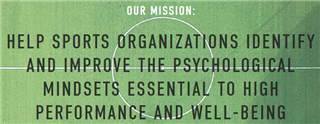
And who better to try and demystify the questions of sports psychology than those with a combination of scientific psychology knowledge in addition to experience playing sports? “Three members of our team are trained experimental social psychologists… [but] we’re all former athletes, and we all like psychology, so in my eyes, this is perfectly aligned with our intrinsic, personal motivations and with how we want to have an effect on the world,” comments Yoi Tibbetts, another co-founder of MAP Sports.
 Yoi, a research assistant professor in the Curry School of Education at the University of Virginia, also played on the men’s soccer team during his time as an undergraduate student at Swarthmore College. Yoi was keen to share his personal excitement about the work MAP Sports is doing, an excitement that he has found contagious among the people and organizations MAP Sports is working with. “One thing our iLab mentor, Rick, was saying was, ‘Go to where the energy is.’ And I think [that]... when we’re going out and talking with people about what we’re doing, the positive energy people have once they hear about our idea has been really inspiring.”
Yoi, a research assistant professor in the Curry School of Education at the University of Virginia, also played on the men’s soccer team during his time as an undergraduate student at Swarthmore College. Yoi was keen to share his personal excitement about the work MAP Sports is doing, an excitement that he has found contagious among the people and organizations MAP Sports is working with. “One thing our iLab mentor, Rick, was saying was, ‘Go to where the energy is.’ And I think [that]... when we’re going out and talking with people about what we’re doing, the positive energy people have once they hear about our idea has been really inspiring.”
Kenn was quick to add in his own experiences with players and coaches, saying, “I think the thing that was probably the most gratifying for me was when I thought, ‘We’re just going out to do a focus group with players,’ but they were just so appreciative and thankful. When the coaches tell me, ‘We never get together and talk about these things,’ I mean, that just shocked me… and I realized we really could move people and give them the ability to engage and talk with each other.”
When asked about what MAP Sports hopes to do in the future, the response was unanimous: bringing the work MAP Sports is currently doing with sports organizations and bringing it to bear on all sorts of other fields, with the common link of motivation.
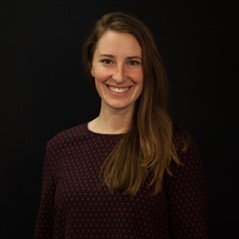 Amberly Grant, a recent addition to the business division of the MAP Sports team, said she has very high hopes for what MAP Sports can do for the world: “Everyone should care about motivation," Amberly says. "Most people want to learn more about themselves and how to be a better person. Our work at MAP Sports is specifically with athletes and coaches, but our work can be translated into the lives of the general public, with students, with professionals, you name it.” Yoi concurred, saying, “When we think about our potential to have an impact, I think it’s limitless. There are just so many fields that are demanding this kind of work.”
Amberly Grant, a recent addition to the business division of the MAP Sports team, said she has very high hopes for what MAP Sports can do for the world: “Everyone should care about motivation," Amberly says. "Most people want to learn more about themselves and how to be a better person. Our work at MAP Sports is specifically with athletes and coaches, but our work can be translated into the lives of the general public, with students, with professionals, you name it.” Yoi concurred, saying, “When we think about our potential to have an impact, I think it’s limitless. There are just so many fields that are demanding this kind of work.”
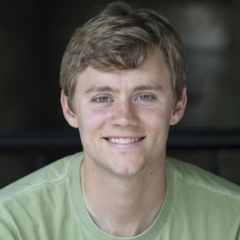 Evan Nesterak, the fourth co-founder of MAP Sports and Editor-In-Chief of the non-profit online magazine the Behavioral Scientist, had a bit more to say about his thoughts regarding the current challenges facing the team. When asked about what was keeping him up at night, “Well, aside from how much coffee I drink,” Evan said with a laugh, “what keeps me up right now is that we’re in this uncomfortable phase where we have to do a lot of exploration where there are tons of what ifs, and that takes a lot of mental energy. You need to play all those scenarios out in your mind to be able to get to where you want to go. Then, you have to not get impatient -- wait until the one or two best strategies rise to the top, and then it’s time to really hone in on those.”
Evan Nesterak, the fourth co-founder of MAP Sports and Editor-In-Chief of the non-profit online magazine the Behavioral Scientist, had a bit more to say about his thoughts regarding the current challenges facing the team. When asked about what was keeping him up at night, “Well, aside from how much coffee I drink,” Evan said with a laugh, “what keeps me up right now is that we’re in this uncomfortable phase where we have to do a lot of exploration where there are tons of what ifs, and that takes a lot of mental energy. You need to play all those scenarios out in your mind to be able to get to where you want to go. Then, you have to not get impatient -- wait until the one or two best strategies rise to the top, and then it’s time to really hone in on those.”
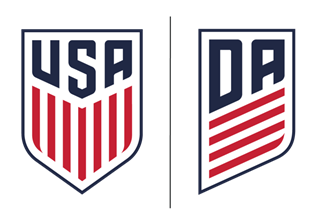 MAP Sports has already made big strides in helping sports organizations. Having partnered with the U.S. Soccer Development Academy and the Junior Tennis Championship Center, MAP Sports is doing hands-on work and research with players and coaches in multiple sports. With their time at the iLab this summer, the team is eager to engage with other entrepreneurs to cultivate and evolve their current ideas.
MAP Sports has already made big strides in helping sports organizations. Having partnered with the U.S. Soccer Development Academy and the Junior Tennis Championship Center, MAP Sports is doing hands-on work and research with players and coaches in multiple sports. With their time at the iLab this summer, the team is eager to engage with other entrepreneurs to cultivate and evolve their current ideas.
“One thing I’ve learned is putting out half-formed ideas in a group that is similarly motivated with similar goals can have huge benefits,” muses Yoi. “Just putting that idea out there can take that half-baked idea and fully bake it, so to speak. Allowing the idea to marinate and gather so many more awesome flavors from others makes it become this epiphany of an idea that we can then capitalize on.”
And as far as inventing a simple formula that can fit on a Post-It note, as Kenn had hoped to do, MAP Sports has already created one: M = E + V - C, or Motivation = Expectancy + Value - Costs.
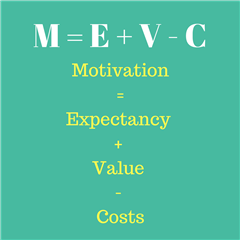
If you want to know more about this equation, the MAP Sports mission, or their work and research, you can find the MAP Sports team at https://www.mapsports.us/, or reach out with specific inquiries for the team at https://www.mapsports.us/get-in-touch/ or info@mapsports.us.
***
About The Team
Chris Hulleman is a professor in the Curry School of Education at the University of Virginia, where he researches motivation. Chris received his Ph.D. in experimental social and personality psychology from the University of Wisconsin-Madison in 2007 and his B.A. from Central College, where he was a member of the football team. Prior to his career in psychology, Chris spent six years as teacher and coach in Iowa. He can be reached at chris@mapsports.us.
Kenn Barron is a professor of psychology at James Madison University, where co-directs the Motivation Research Institute. Kenn received his Ph.D. in social and personality psychology from the University of Wisconsin-Madison in 1999 and his B.A. from Bucknell University, where he was a member of the men’s soccer team. He can be reached at kenn@mapsports.us.
Yoi Tibbetts is a research assistant professor in the Curry School of Education at the University of Virginia. Yoi received his Ph.D. in social and personality psychology from the University of Wisconsin-Madison and earned his B.A. from Swarthmore College in 2009, where he was a member of the men’s soccer team. He can be reached at yoi@mapsports.us.
Evan Nesterak is Editor-in-Chief of the Behavioral Scientist, and has coached soccer for over six years and currently serves on the board and is a coach-trainer for the U.S. Soccer Foundation’s Soccer for Success program. Evan received his B.A. from Swarthmore College in 2009, where he was a member of the men’s soccer team. He can be reached at evan@mapsports.us.
Amberly Grant is a Project Manager at Oracle NetSuite. Previously, she has worked in business development and project management in the food and fitness industries. She graduated from the University of Colorado Leeds School of Business, where she studied business management, strategy, and entrepreneurship. She can be reached at amberly@mapsports.us.
